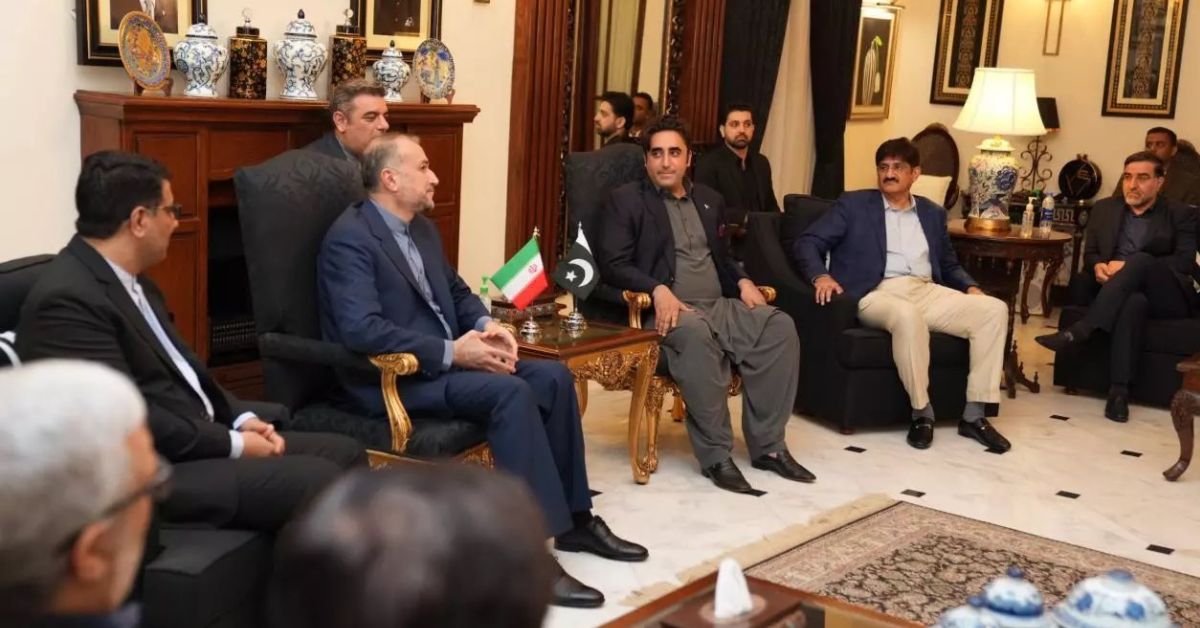KARACHI, PAKISTAN — The Islamic Republic of Pakistan, as a neighboring and Muslim country, has always been of great importance to the Islamic Republic of Iran. The existence of more than nine hundred kilometers of common land border and many historical, cultural and religious commonalities have made the connection between the two countries durable.
In this regard, in recent years, effective measures have been taken to expand the relations between the two countries, especially in the economic field. For example, with the cooperation of the both sides, two new border terminals have been opened in the areas of “Rimdan-Gabed” and “Pishin-Mand” along the common border.
Also, an MoU has been signed for the opening of six joint border markets. In addition, due to the fact that both countries have a strategic geographical position and are located on the path of international transportation corridors and global transportation plans such as the Belt and Road Initiative, efforts have been made to make use of the existing capacities for the development of bilateral and regional cooperation in the fields of transportation and transit.
It is worth mentioning that the geographical location of the two ports of Chabahar (in Iran) and Gwadar (in Pakistan) are other capacities that can be exploited in order to increase the bilateral and regional economic cooperation of the two countries.
The economies of Iran and Pakistan are inherently complementary. For example, Pakistan can be a supplier of Iran’s needs in the agricultural sector, and Iran can cover Pakistan’s need for energy. For this purpose, the Iran-Pakistan (IP) gas pipeline, has been extended by the government of the Islamic Republic of Iran to the border of Pakistan.
Iran’s electricity exports to Pakistan have also been on the rise. The total bilateral trade between Iran and Pakistan has been going up in recent years and reached more than $2.3 billion.
Also, the simultaneous membership of Iran and Pakistan in regional arrangements such as the Economic Cooperation Organization (ECO), the Group of Eight Developing Islamic Countries (D8), the Shanghai Cooperation Organization and the Asian Trade Union (ACU) as well as the constructive bilateral cooperation in international bodies such as the World Bank, the International Monetary Fund, the Economic and Social Council of the United Nations (ECOSOC) and the United Nations Industrial Development Organization (UNIDO) also provide a suitable platform for promoting commercial and economic relations.
Nevertheless, the private sector plays an undeniable role in developing bilateral economic cooperation. The Islamic Republic of Iran supports the development of tourism between the two countries. The Islamic Republic of Iran declares its readiness to provide health tourism services to the dear Pakistani sisters and brothers.
We hope that with the rise of cooperation between the two friendly and brotherly countries of Iran and Pakistan, we will witness the ever-increasing expansion of bilateral economic and commercial cooperation.
Hossein Amir-Abdollahian is the Foreign Minister of Iran. These are edited excerpts from his speech, delivered during a conference on economic and investment opportunities between Iran and Pakistan in Karachi.
The opinions expressed are those of the speaker and may not reflect the editorial policy or an official position held by TRENDS.








